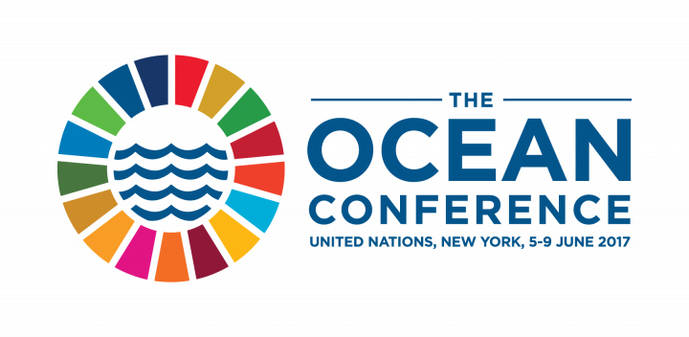Compelling arguments have been presented before in U.N. conferences in favor of a more responsive use of the seas without much action following. Thus the Association of World Citizens is stressing that the June Ocean Conference should be an opportunity for the development of world law concerning the oceans and for setting standards that enable peaceful political and economic relations and cooperation. Oceans, seas, rivers and lakes are all part of the global commons. They should be intelligently maintained and managed for the present and future good of all people and with full concern for the wild life inhabiting them.
Many of these issues have been raised by James Alix Michel, President of the Republic of Seychelles in his book Rethinking the Oceans[1]. As he writes “The oceans are the world’s last frontier with vast areas still to be explored and an enormous supply of resources yet to be harnessed. In terms of development, barely a start has been made, for example, to tap into the huge potential of renewable energy, while to take another example, the prospects for seabed mining are undoubtedly immense yet still little known.”
Challenges and issues can be placed in four categories:
1. Sea and Ocean delimitation issues, such as those in the South China Sea or between the two Korean governments. These issues arise from the U.N. Law of the Sea Convention which sets out the territorial sea of 12 nautical miles followed by the Exclusive Economic Zone. These issues will probably be avoided at the June conference as “too political”.
2. Save our Seas: The protection and to the extent possible to undue the harm of pollution already done by bad human practices. The hope is that the Ocean Conference will issue a firm pledge for collective action to accelerate actions to prevent and significantly reduce marine pollution of all kinds, including marine debris, nutrient pollution, untreated waste water, solid waste discharge, and pollution from ships.
3. The sustainable management of existing resources and practices: fishing, ocean transportation, tourism. There is a need to enhance sustainable fisheries management and to counter destructive overfishing and unregulated fishing. Many fish stocks have been driven to exhaustion or are overstressed. Nevertheless, sea food is the fastest growing food commodity that is traded globally.
The recent Belt and Road Initiative Forum in China has highlighted the projected growth in ocean transportation with the modernization of existing ports and the creation of new port cities.
Much mass tourism is related to ocean and sea locations. The negative, pollution-related impact of mass tourism must be reduced. New forms of tourism such as eco-tourism or educational tourism can be developed.
4. The development of new resources: Seabed mining issues had already been raised during the 1970s UN Law of the Sea Conference. Seabed mining has not developed as quickly as was thought possible at the time as land-based mining continues to meet current needs. However, seabed mining remains a real possibility, and issues of who gets what and how from mining the seabed remains. In addition, as global warming reduces the Arctic ice cover, possibilities of oil and mining increases. There are issues both of territorial boundaries and of the impact on the fragile ecology of the Arctic.
To create a better life on earth, we need to find better ways to grow food, to generate energy and to protect the ecology on which our future depends. As citizens of the world, we have confidence in negotiations in good faith, in mutual respect, understanding, and world cooperation. The June Ocean Conference is the next opportunity to move toward a harmonious world society.
[1] James A. Michel Rethinking the Oceans (St.Paul, MN: Paragon House, 2016, 227pp.)
Rene Wadlow
Pressenza IPA
Creative Commons



















 Si (
Si ( No(
No(






